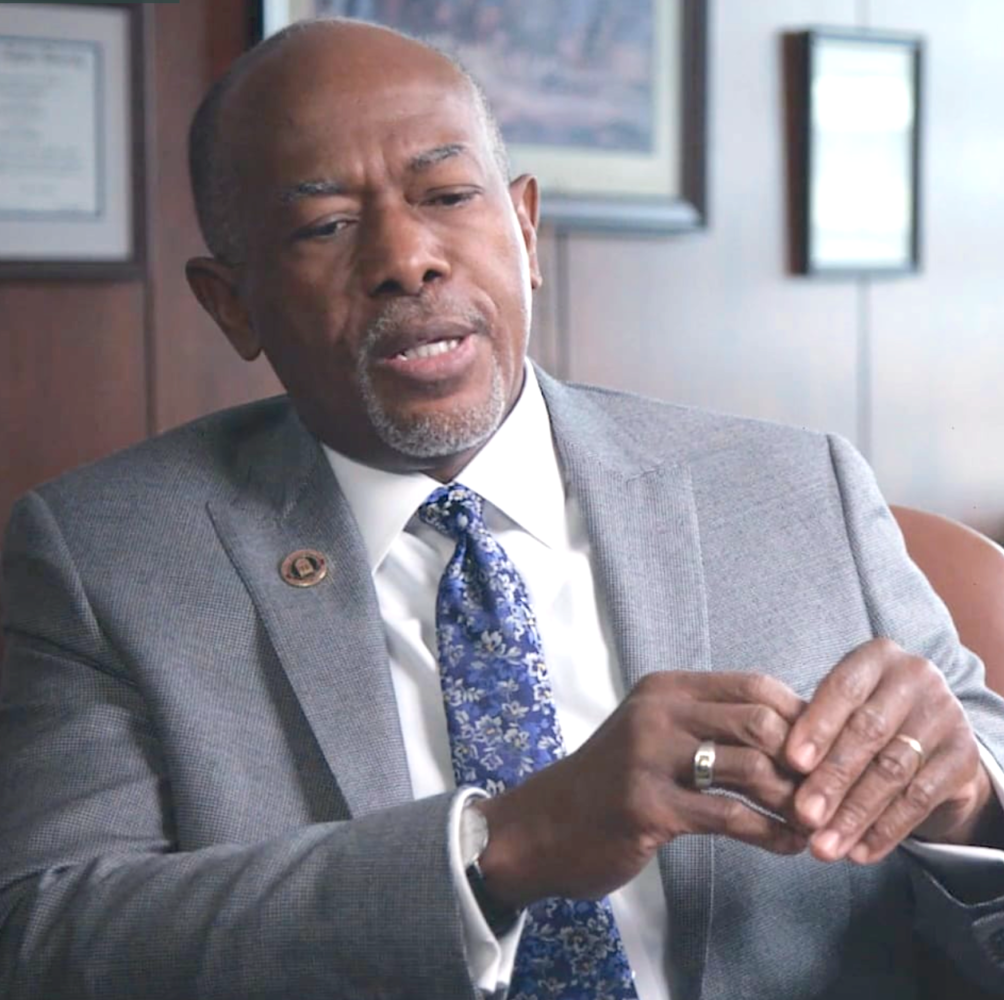National News
NMA President Advises: Think Like Health Advocate Not Victim

By Rosaland Tyler
Associate Editor
New Journal and Guide
Although a disproportionate number of African Americans are dying from COVID-19, boost your immune system by thinking like an advocate not a victim.
This prescription was dispensed by Dr. Oliver Brooks, president of the National Medical Association and chief medical officer at Watts Healthcare, in Los Angeles. He made his remarks, after recent news reports showed the coronavirus is like a traffic pileup in many African American neighborhoods: One epidemic is jumping on another epidemic.
“We need to advocate for ourselves,” Brooks said recently in a MSNBC interview.
To reduce health disparities amid the coronavirus pandemic, shift your focus so that you begin to think like an advocate, not a victim, said Brooks who graduated with a 1977 degree in biology in three years from Morehouse, according to his bio. He received his medical degree in 1981 from Howard University College of Medicine.
There are three ways you can avoid thinking like a victim and think like an advocate, Brooks said.
No. 1, vote in November for candidates who will protect your interests. No. 2, pose serious questions to your physician, if a prescribed medication is not improving a specific health problem (like, say, heart trouble, which disproportionately strikes people of color). No. 3, guard your health.
CDC records show that people of color with chronic lung disease, moderate to severe asthma, serious heart conditions, cancer, severe obesity, diabetes, renal failure, and liver disease are at higher risk for severe illness.
“If we acquire the virus bad things are more likely to happen,” Brooks said in an April 2 interview with The Los Angeles Sentinel.
Meanwhile, Brooks flipped open his prescription pad and made a few more recommendations that could provide some immunity to people of color, according to a recent Fortune magazine interview.
Change housing policies so that they protect and shelter blue collar and hourly employees who work on the front lines, he said. Provide masks and protective equipment to employees, and distribute disease prevention information to people in low-income neighborhoods during the pandemic.


 Hampton Roads Community News1 week ago
Hampton Roads Community News1 week agoWomen United Celebrates 15 Years of “Stone Soup”

 Entertainment5 days ago
Entertainment5 days agoNew Partnership Brings Films By HBCU Students Free To TUBI-TV

 Black History1 week ago
Black History1 week agoIn Memoriam: Hon. Florine R. Clarke Passes At Age 96; Was Chesapeake Pioneer

 Black Opinions1 week ago
Black Opinions1 week agoTrump’s Threat To “Nationalize” Our Elections Endangers Voting Security

 Black Arts and Culture6 days ago
Black Arts and Culture6 days agoDr. Grady James At 100 Celebrates Lifetime Legacy Of Advancing Media

 Black History6 days ago
Black History6 days agoThe Final Edition: 5 Unforgettable Lessons from the 34-Year Legacy of the Richmond Free Press

 Hampton Roads Community News4 days ago
Hampton Roads Community News4 days agoNew Mixed-Use Approach To Transform MacArthur Center

 Black History4 days ago
Black History4 days agoShe’s 104 Years Young! Effie Foster Revis – A Life Anchored In Faith, Education, and Community





















